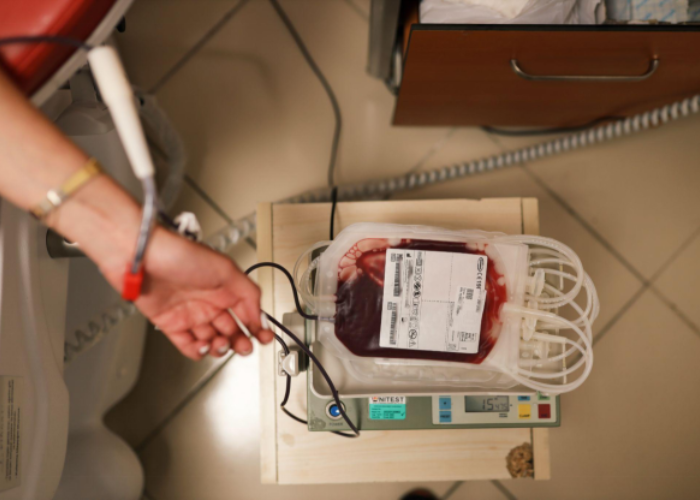Blood stem cell donation is a remarkable act of generosity that can have a life-saving impact on individuals battling life-threatening blood disorders. In short, the idea is to donate blood stem cells to people suffering from certain conditions, and it’s incredibly selfless. In this article, we will explore what blood stem cell donation entails, how it works, and the incredible benefits it brings to both donors and recipients.
How Does Blood Stem Cell Donation Work?
For those unaware, our bodies need white blood cells, red blood cells, and platelets to remain healthy, and they all start with blood stem cells. Unfortunately, many people, including those with diseases such as leukemia, lymphoma, and sickle cell anemia, suffer from a malfunctioning or depleted blood stem cell supply.
Blood stem cell donation involves providing healthy blood stem cells to replace the faulty or damaged ones in a patient. These donated cells can be obtained from two primary sources: bone marrow or peripheral blood.
How Blood Stem Cell Donation Works
- Bone Marrow Donation: This traditional method involves extracting stem cells from the pelvic bone under general anesthesia. If you’re concerned, the first thing to note is that any tiredness or soreness that comes in the days after will soon disappear. The extracted cells are then transfused into the recipient’s bloodstream, where they can begin the process of rebuilding the blood and immune system.
- Peripheral Blood Stem Cell Donation: Often shortened to PBSC, this type of procedure collects blood stem cells without requiring surgical intervention. For a few days before the donation, the donor receives injections of a medication called filgrastim to increase the number of stem cells in their blood. In simple terms, blood is taken from one arm and put back into the other. However, in between, a special machine has the capability to separate the stem cells. This process may cause temporary side effects like headache or bone or muscle pain, but these are generally mild and short-lived.
The Benefits of Being a Donor
- Saving Lives: One of the most significant benefits of being a blood stem cell donor is the opportunity to save someone’s life. By providing healthy stem cells to a recipient in need, donors can potentially cure life-threatening blood disorders and offer a renewed chance at life.
- Emotional Satisfaction: The act of donating blood stem cells is a deeply fulfilling experience. Knowing that you have made a tangible and positive impact on someone’s life can bring a sense of purpose and emotional satisfaction that is unmatched. The gratitude and appreciation from the recipient and their loved ones can be incredibly rewarding.
- Easy Process: Blood stem cell donation, particularly through the PBSC method, is a relatively simple and straightforward process. The preliminary evaluations and medical screenings are conducted to ensure the donor’s healthand compatibility, and the actual donation typically takes only a few hours. Moreover, the recovery time after donation is relatively short, allowing donors to resume their daily activities relatively quickly.
- Medical Assessment: As a blood stem cell donor, you undergo a comprehensive medical evaluation that includes blood tests, physical examinations, and a review of your medical history; this evaluation provides an opportunity to receive a thorough health assessment, including potential early detection of any underlying health issues.
- Strengthening the Community: Blood stem cell donation not only impacts individual lives but also strengthens communities. The more people that take this selfless step, the more likely others are to follow suit. This ripple effect helps to expand the pool of potential donors, improving the chances of finding matches for patients in need.
Becoming a blood stem cell donor is a powerful and life-changing decision. By offering the gift of healthy blood stem cells, donors can save lives, experience emotional fulfillment, and contribute to the well-being of their communities. Why not get started by contacting a registry today to learn more?




